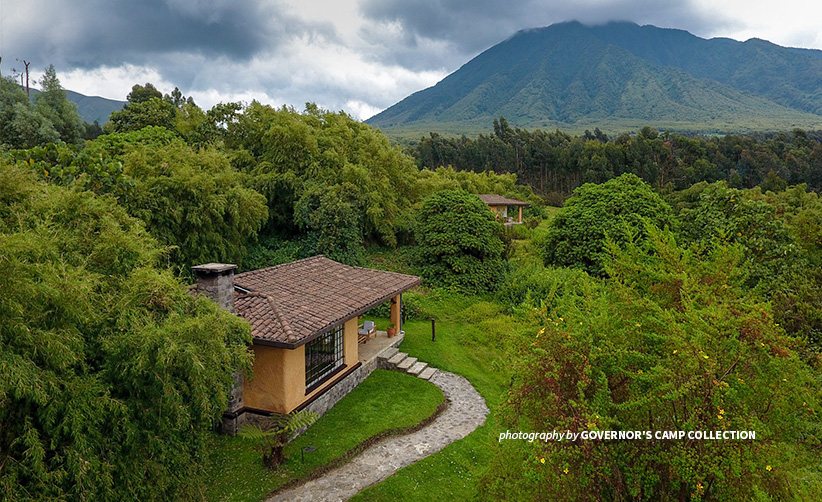Ecotourism is financing biodiversity protection and advancing economies

Encompassing diverse ecosystems, Africa’s network of protected areas is home to rare species facing a combination of threats — habitat conversion, poaching, and bush meat consumption are just some of them. While the challenges vary across landscapes, many national parks and reserves struggle to meet their budgetary needs. The financial shortfall is vast — according to McKinsey Group, the budget gap is estimated upwards of $1.7 billion annually for all developing nations. Uganda, for example — despite being one of the top 10 most biodiverse countries in the world — has a $15 million funding gap for protected area management. Securing threatened wildlife and maintaining healthy habitats in and around biodiversity hotspots depends on creating self-generating revenue mechanisms for protected areas and the people living around them. African Wildlife Foundation works with wildlife protection authorities to help them optimize the economic opportunities in their protected area system.
Governments are also recognizing the potential of private investment in responsible wildlife tourism as a means to finance biodiversity protection — and advance their economies. Building on the momentum of the Giants Club Conservation and Tourism Investment Forum in October 2017 as well as the International Conference on Nature-Based Tourism organized by the Government of Mozambique in June 2018, AWF is confident that ecotourism can help reduce the funding gap if structured properly.
Community-owned tourism enterprises expand economic potential
AWF helps to develop community-owned ecolodges that deliver economic and conservation benefits on multiple levels. It is an approach that maintains the continent’s picturesque landscapes, conserves the wildlife from immediate threats, and diversifies the revenue earning potential of protected areas.
In Rwanda, land of a thousand hills, Sabyinyo Silverback Lodge, an elegant, airy luxury lodge lies nestled in the Virunga massif, a critical mountain gorilla habitat. Similarly named after the endangered great ape species it helps protect, the Clouds Mountain Gorilla Lodge neighbors the dense forests of Uganda’s Bwindi Impenetrable National Park. At the foot of Mt. Kilimanjaro, sits Satao Elerai Lodge, a camp where you can rest on a private veranda, perhaps reliving your pre-dawn bushwalk with Maasai warriors.
Explore an interactive story map about the history of our work with mountain gorillas in Rwanda
These AWF-initiated ecolodges are diverse in location, natural attractions, and design but all help protect Africa’s precious landscapes for the benefit of the continent’s people as well as its wildlife.
AWF pioneered community ownership of wildlife-based luxury lodges two decades ago. We facilitate partnerships between the communities and private-sector operators and have raised capital on behalf of the community to develop lodges, which in some cases are wholly owned by the community members. They provide the land and derives income and employment, and the private partner offers management expertise and support in developing award-winning tourist facilities.
Conservation empowers rural communities
The lodges attract guests to national parks and community conservancies, encourage longer stays and generate revenue for protected areas through increased gate collections and park/guide fees. They also provide income directly for communities. Since opening in 2007, for example, Sabyinyo Silverback Lodge has generated almost $3 million for the community, which has been used to support social services, infrastructure, and education. This has resulted in strong support by the community for gorilla conservation.
Evidence shows that lodges based on wildlife tourism are indeed a strong conservation incentive for communities. A 2017 AWF study used satellite imagery to analyze new-construction density (huts, livestock pens, etc.) and land modification for farming, housing or livestock in four group ranches where AWF had implemented community-based conservation programs. All of the community programs included ecolodges except one. The researchers found that the programs with ecolodges controlled development in the conservation and grazing zones significantly better than that without. One community program had expanded its conservation area more than seven-fold through agreements with neighboring communities.
The findings point to the positive impacts of AWF’s conservation enterprise initiatives. Community-owned tourism programs that deliver jobs and benefits motivate locals to be better conservation stewards of their land.